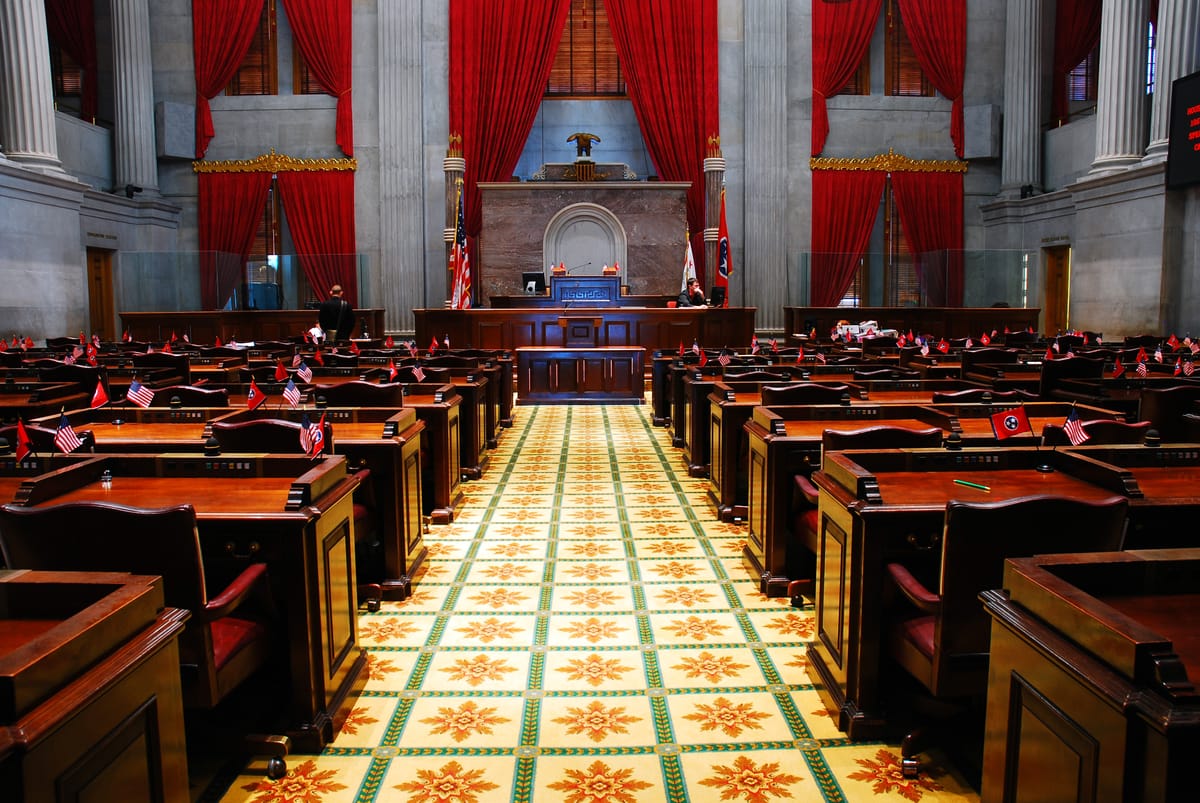Tennessee's GOP supermajority dominates the legislature, ensuring priority bills, like those on immigration and safety, clear hurdles. This session will define the balance between MAGA populists and establishment Republicans.
The 2025 legislative session in Tennessee is already heating up with the introduction of several bills including those that target illegal immigration and supporting disabled veterans. The proposed legislation reflects perhaps, a sharpened focus by some conservative lawmakers on issues they believe will strengthen state security, enhance accountability, and prioritize the welfare of Tennessee citizens.
Cracking Down on Illegal Immigration
Senate Bill 0017 (SB0017) – Enforcing Immigration Reporting
State Senator Todd Gardenhire (R-Chattanooga) has introduced SB0017 to hold law enforcement agencies accountable for reporting illegal immigrants to federal authorities. This measure builds on legislation passed in 2024, which Gardenhire notably opposed at the time. Now, he argues that penalties are necessary to ensure compliance with existing laws, proposing fines of up to $1,000 for agencies failing to report undocumented immigrants in custody for crimes.
The bill explicitly exempts illegal immigrant children attending Tennessee public schools, as well as individuals who are witnesses to or victims of crimes, focusing instead on those already in custody for criminal activity. However, how agencies across the state handle immigration reporting remains inconsistent, with some like Metro Nashville Police Department (MNPD) refusing to enforce federal immigration laws. Other agencies, like the Davidson County Sheriff’s Office, utilize fingerprint databases but often lack transparency in reporting.
House Bill 0010 (SB0006) – Transporting Illegals to Sanctuary Cities
State Representative Todd Warner (R-Chapel Hill) And cosponsor, Senator Joey Hensley (R- Hohenwald) has proposed HB0010/SB0006, which requires law enforcement agencies to request immigration detainers for illegal immigrants in custody. If federal authorities fail to act within 48 hours, the bill mandates transporting the individuals to sanctuary cities. Warner sees this as a practical solution to address federal inaction, stating, “If these cities want to take them, then God bless them.” The measure also aims to reimburse local authorities for transportation costs by redirecting federal petroleum taxes.
House Bill 0011 (SB0005) – Distinguishing IDs for Non-Citizens
Rep. Scott Cepicky (R-Culleoka) and Senate Co-Sponsor Senator Joey Hensley (R- Hohenwald) filed HB0011, which calls for a redesign of Tennessee licenses, IDs, and permits to clearly differentiate between U.S. citizens and non-citizens. Cepicky asserts this would streamline processes for employers using E-Verify and agencies like TennCare. Citizens would have the option to voluntarily provide proof of citizenship to the state when obtaining a license.
Support for Disabled Veterans
House Bill 0052 (HB0052) – The VALOR Act
Rep. Gino Bulso (R-Brentwood) has introduced the Veterans Assistance for Livelihood, Opportunity, and Relief Act (VALOR Act), aimed at easing financial burdens for 100% permanently and totally disabled veterans. Under HB0052, qualifying veterans would receive exemptions from certain taxes and fees, including:
- Vehicle registration fees for one private vehicle
- Local property taxes on their primary residence, covered by the state’s general fund
- Costs for permanent hunting and fishing licenses within Tennessee
If approved, the VALOR Act will take effect on January 1, 2026, further solidifying Tennessee’s commitment to its veterans.
Consistency, Accountability, and Pushback
The introduction of these bills highlights both the urgency and contentiousness of immigration reform in Tennessee. While some Republican lawmakers advocate that these measures are critical steps toward addressing the impact of illegal immigration, critics point to inconsistencies in law enforcement reporting as a key issue. For instance, Sheriff’s departments across the state vary significantly in how they document and disclose immigration-related data, with some agencies withholding information altogether.
This lack of uniformity skews the data legislators rely on, potentially undermining the credibility of the arguments used to support or oppose immigration-related bills.
Additionally, grassroots organizations like Tennessee Stands work diligently to monitor and impose accountability for the legislature’s overall priorities, noting that immigration enforcement could take a backseat to other agenda items like school vouchers. Rep. Warner has openly criticized the establishment Republican focus on vouchers, suggesting it distracts from critical issues like illegal immigration and public safety.
Rising Tensions and Public Sentiment
As the legislative session begins, Tennessee residents are becoming increasingly concerned about safety and security. Anecdotal reports from Williamson County, such as residents describing suspicious encounters with groups of unidentified individuals, highlight the unease many feel about the current state of enforcement.
Lawmakers like Warner and Cepicky hope their proposals will resonate with constituents who feel their communities are at risk due to rising crime rates and a perceived lack of action by federal, state and some county authorities. Warner expressed optimism about stronger federal immigration policies under a potential Trump administration, noting, “We’re behind the 8-ball on this. Hopefully, Trump will make that better.”
Looking Ahead
While some of these bills may face pushback from Democrats and establishment Republicans, Tennessee’s Republican supermajority wields the power to push through legislation it prioritizes. With leadership often determining the fate of bills, once a measure is deemed a priority, it is highly likely to clear committee stages and reach the floor of both chambers. As immigration and public safety take center stage for 2025, the passage of these proposals will not only define this legislative session but also signal whether the state continues down a populist, MAGA-driven path or remains tethered to establishment priorities.

Comments ()